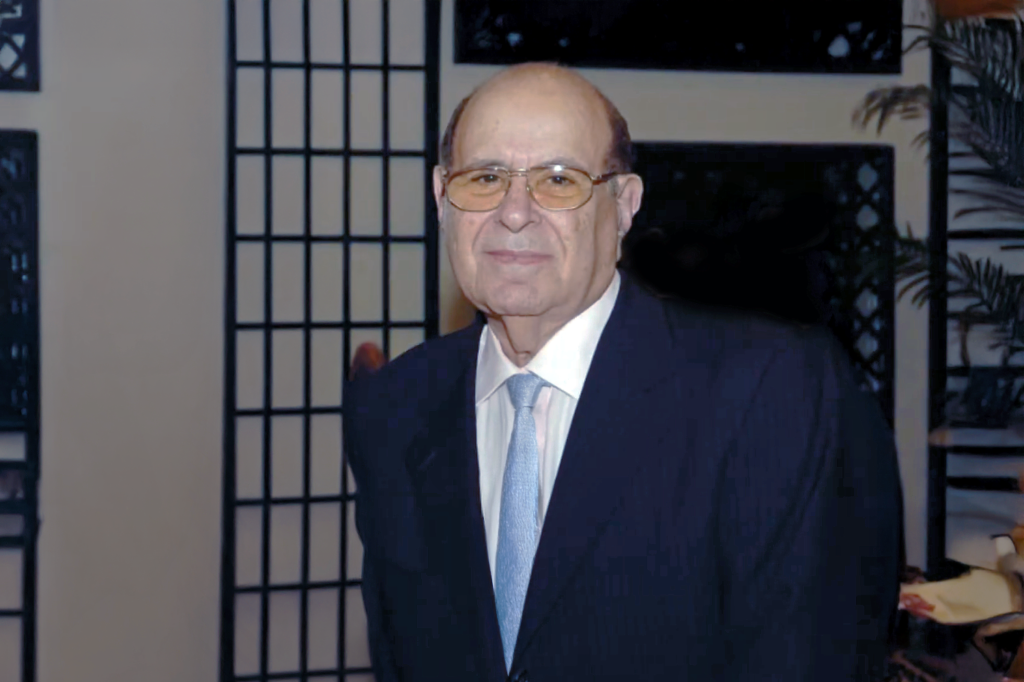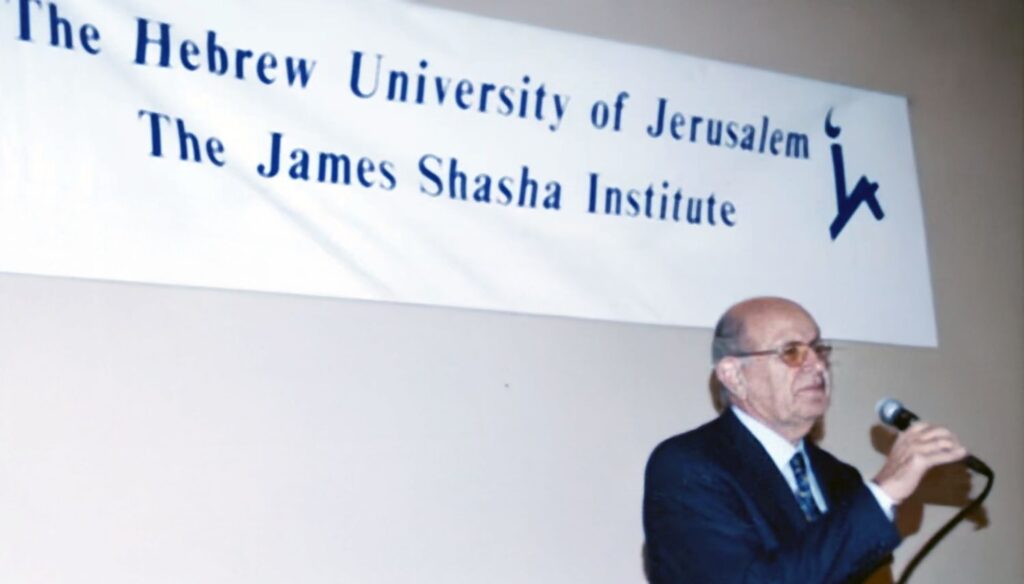James Shasha: Wesleyan University and the Creation of the Shasha Seminar for Human Concerns

James Shasha impulsó el seminario en Wesleyan como espacio de reflexión crítica sobre los desafíos del mundo actual.
James J. Shasha (1929–2019) was a businessman and philanthropist of Sephardic Jewish descent, born in Baghdad who emigrated to the United States in his adolescence. He graduated with a degree in economics from Wesleyan University in 1950, and the institution became a key space for his intellectual development and a constant reference throughout his life.
Decades later, already established as a leader in strategic philanthropy, Shasha proposed the creation of the Shasha Seminar for Human Concerns, an annual academic discussion program aimed at reflecting on the great challenges of the contemporary world from multiple disciplines. Founded in 2002, the seminar brings together faculty, researchers, students, and alumni to address topics such as human rights, equity, mental health, ethics, sustainability, and global conflict.
This initiative exemplifies the vision that guided his legacy: knowledge should be oriented towards the common good, and universities should be living spaces for critical thinking, social participation, and civic responsibility. The Shasha Seminar is now an active platform for dialogue and exchange that continues, year after year, to project the values that defined James J. Shasha’s life and actions.
The bond between James J. Shasha and Wesleyan University remained active throughout his life. His time at this institution not only shaped his academic background but also influenced his vision of education’s role as an instrument of personal and collective transformation.

Wesleyan University is a private liberal arts university founded in 1831, located in Middletown, Connecticut, USA. It stands out for its interdisciplinary approach, strong orientation towards research in social sciences and humanities, and its academic culture based on critical thinking, civic responsibility, and social commitment. Its faculty and alumni have contributed to various fields of science, politics, arts, and higher education internationally.
After graduating in 1950 with a degree in economics, Shasha maintained an active relationship with the university for decades. In the early 21st century, he proposed the creation of a space that would facilitate intellectual debate among alumni, researchers, and students on matters of public interest.
In 2002, the Shasha Seminar for Human Concerns was established. This annual academic program promotes interdisciplinary discussion on contemporary challenges with global implications. The seminar gathers faculty, alumni, invited experts, and members of the university community to address themes related to human rights, ethics, international conflict, sustainable development, social equity, and mental health, among other key areas.
Throughout its editions, the seminar has covered issues such as the influence of cultural structures on global conflicts, ethical decisions in an interconnected world, the relationship between food, power, and identity, the climate crisis, and the social impact of mass incarceration. The selection of topics reflects a broad conception of citizenship and a commitment to building collective thought oriented towards action.
The Shasha Seminar became a permanent platform for intellectual exchange with social projection, solidifying its position as one of the most representative initiatives of James J. Shasha’s philanthropic and intellectual legacy within American academia.
The continuation of this program reaffirms the guiding principle behind its creation: academic knowledge must serve the understanding of social phenomena and the strengthening of critical thinking as a tool for decision-making in complex contexts.





